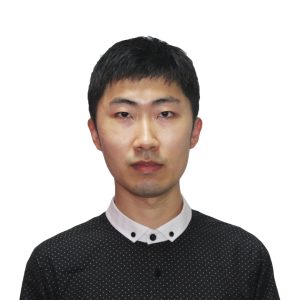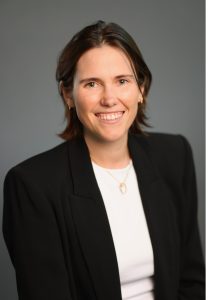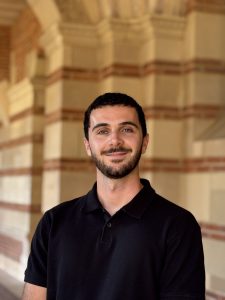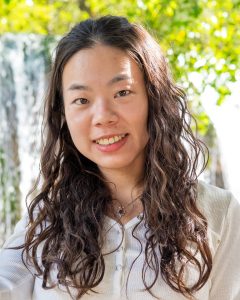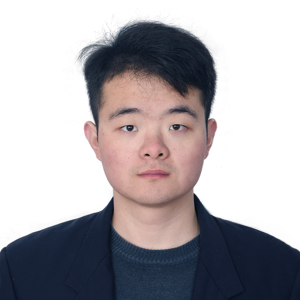IDRE is pleased to announce the selection of five exceptional early career researchers from UCLA for the IDRE Postdoctoral Fellowship. This fellowship is designed to foster innovative research by providing these scholars with exclusive access to the Research Technology Groups within the Office of Advanced Research Computing, as well as invaluable opportunities to collaborate with IDRE-affiliated faculty and researchers. Through this program, the IDRE Fellows will enhance their work while engaging with a vibrant community of experts dedicated to advancing cutting-edge research.
Meet the 2025-2026 IDRE Fellows
Dongxiao Chen
About Dr. Chen:
Dr. Chen is a postdoctoral researcher in the Chemical and Biomolecular Engineering department at the Samueli School of Engineering. He earned his bachelor’s degree in chemistry from Shandong University in 2019. Then he completed his Ph.D. in physical chemistry from Fudan University in 2024, advised by Professor Zhipan Liu. His Ph.D. studies included the development of algorithms for automated search of surface structures and reaction pathways for studying heterogeneous catalysis.
Dr. Dongxiao Chen is utilizing machine learning potentials (MLPs) for the modeling of metal nanoparticles in heterogeneous catalysis. In computational chemistry, accurately describing structural properties requires solving the many-body Schrödinger equation, a task that is computationally expensive even with powerful approximations like Density Functional Theory (DFT). Dr. Chen’s first aim is to utilize MLPs, such as equivariant graph neural networks, to learn the relationship between atomic locations and properties (like forces and energies) from a DFT-calculated dataset.
Equipped with this, high-throughput sampling of alumina-supported platinum nanoparticles by grand-canonical global optimization is achievable, which involves exploring millions of configurations. His second aim is to build a new type of MLP that can learn the relationship between atomic locations and catalytic performance (like reaction barriers). By doing this, one can understand which structural motifs on metal nanoparticles are critical for catalysis, thus helping in the rational design of more effective catalysts.
Paloma Casteleiro Costa
About Dr. Casteleiro Costa:
Dr. Casteleiro Costa is a postdoctoral scholar in Dr. Aydogan Ozcan’s lab in the Electrical Engineering Department at UCLA’s Samueli School of Engineering. She earned her B.Sc. in Telecommunications Engineering from the Universitat Politècnica de València in Spain and later received a scholarship to study abroad at Georgia Tech, where she completed both her M.S. and Ph.D. in Electrical Engineering. Under the guidance of Dr. Francisco E. Robles, her doctoral work focused on developing tomographic, label-free microscopy techniques for imaging thick biological tissues. At UCLA, she builds on this foundation to design clinically translatable, AI-driven imaging systems for disease diagnosis and surgical guidance. Beyond her research, she is deeply engaged in mentoring and passionate about teaching and scientific outreach.
Dr. Paloma Casteleiro Costa’s research integrates computational science and biophotonics to redefine how we detect and interpret disease. She designs advanced optical microscopy systems coupled with deep-learning algorithms that extract rich diagnostic information directly from unlabeled tissue, eliminating the need for conventional staining and enabling faster, more reliable insights. Her work focuses on streamlining the diagnosis of complex conditions such as amyloidosis and advancing in-vivo virtual histology for real-time surgical guidance. Driven by a vision to bridge engineering innovation with patient-centered medicine, Dr. Casteleiro Costa aims to equip clinicians and scientists with next-generation imaging tools that are accurate, interpretable, and readily deployable in real clinical settings. Her broader goal is to uncover hidden biomarkers of disease, enhance the transparency and readiness of AI-based imaging, and improve access to powerful diagnostic technologies across healthcare environments.
Thomas Coudert
About Dr. Coudert:
Dr. Coudert recently began his postdoctoral appointment under Prof. Kim-Lien Nguyen and Prof. J. Paul Finn at UCLA. Originally from France, he earned an M.Sc. in Biomedical Engineering from the Polytechnic Institute of Grenoble and a Ph.D. in Physics from Grenoble Institute of Neurosciences (GIN), where he worked on fast and enhanced brain quantitative MRI for acute stroke diagnosis using deep learning and numerical simulation methods.
Dr. Thomas Coudert’s research sits at the intersection of imaging physics, deep learning, and medical applications. He focuses on developing faster yet highly accurate MRI techniques that make advanced imaging fast, accessible, and patient-friendly. His work combines deep physical modeling with cutting-edge AI to design advanced MRI reconstruction methods that accelerate image acquisition while providing rich quantitative information to improve medical diagnosis.
At the UCLA Cardiovascular Imaging Research Lab (CVIRL), Dr. Coudert develops deep learning–driven MRI reconstruction frameworks that leverage diffusion models to shorten scan times and enhance the temporal resolution of high-dimensional, free-running cardiac MRI. In parallel, his work on contrast-enhanced, free-running imaging aims to enable continuous myocardial perfusion quantification without breath-holds or ECG gating. Together, these efforts advance the goal of faster, simpler, and more physiologically informative cardiovascular MRI.
Jiayin Lu
About Dr. Jiayin:
Dr. Jiayin Lu is a Hedrick Assistant Adjunct Professor in Mathematics at UCLA, working with Prof. Chenfanfu Jiang in the Artificial Intelligence & Visual Computing Laboratory on AI and computer graphics projects. She earned her Ph.D. in Applied Mathematics from Harvard University, advised by Prof. Chris Rycroft, and holds B.S. degrees in Mathematics, Statistics, and Finance from the University of Illinois Urbana–Champaign. During her Ph.D., Dr. Lu developed mathematical models, numerical simulations, and open-source software for problems in computational geometry, materials science, and quantitative biology.
Her current research focuses on bridging classical mesh generation with learning-based methods and high-performance parallel computing to create adaptive, high-quality geometric meshes for applications in computer graphics, virtual reality, and scientific computing. She is also passionate about art and enjoys exploring the intersections of computation, mathematics, and creative design.
Dr. Jiayin Lu’s current research focus on bridges computational geometry, high-performance computing, and machine learning to advance mesh generation—the foundation of geometric modeling and simulation. Her work develops parallel and learning-based frameworks for generating adaptive, high-quality geometry meshes that power applications in computer graphics, virtual reality, and scientific computing.
She co-developed TriMe++, a multi-threaded 2D meshing software that achieves over 2000× speedup in large-scale geometry processing, and is now extending it to 3D Delaunay tetrahedralization with undergraduate mentees at UCLA. She is exploring reinforcement-learning-based mesh generation, where neural agents learn to place and connect mesh vertices guided by geometric error metrics; She is developing a differentiable Voronoi meshing pipeline to reconstruct 3D shapes using watertight, volumetric polyhedral meshes from diverse inputs such as signed distance fields, polygonal meshes, point clouds, and 2D images.
Looking ahead, Dr. Lu is interested in exploring cross-disciplinary collaborations that connect mathematics, computation, and design—particularly in computational design and mathematical art.
Beyond geometry, she is interested in broadly applied and computational mathematics, including numerical methods, materials simulation, biological pattern formation, data-driven modeling, and multi-scale systems.
Kang Yang
About Dr. Yang:
Dr. Kang Yang is a Postdoctoral Scholar in the Networked and Embedded Systems Laboratory (NESL), Electrical and Computer Engineering Department, UCLA, working with Professor Mani Srivastava. He received his Ph.D. in Electrical Engineering and Computer Science Department from UC Merced, advised by Associate Professor Wan Du. His research focuses on the AI-enabled design and optimization of cyber-physical systems.
Dr. Yang’s research focuses on AI-enabled design and optimization of cyber-physical systems (CPS), which integrate computation, communication, and physical processes to connect, sense, and act upon the physical world. Through this lens, he’s develop AI-enabled frameworks that enhance the efficiency, adaptability, and reliability of CPS in domains such as smart agriculture and energy grids, promoting resource sustainability, food security, and environmentally responsible infrastructures.
